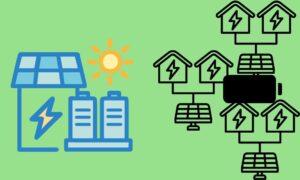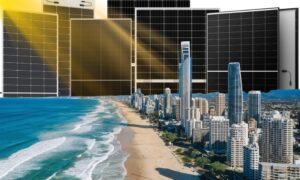Electric clothes dryers are real electricity guzzlers. According to Ausgrid (previously known as EnergyAustralia), they use about fifteen times more energy per cycle than an equivalent sized clothes washing machine.
While the use of electric clothes dryers isn’t all that common In Australia due to much of the country being blessed with reasonably sunny conditions and low humidity; in the United States it’s a very different story.
In many regions in the USA, conditions are often not favourable for outdoors clothes drying and clothes lines are even banned in some communities due to “aesthetic” reasons. As such, clothes drying is a major component of electricity consumption in the nation, and consequently a significant contributor to greenhouse gas emissions.
A team of students from the Bourns College of Engineering at the University of California, Riverside are developing a clothes drying system that could reduce electricity bills up to 16 percent by using heat from the sun and a home’s attic.
Using a solar-powered attic fan, the system harnesses solar thermal heat from a rooftop solar heat collector and/or heated air from the attic. This heated air is channelled into a box 76 centimetres deep and around 2 metres wide and high that holds the clothes to be dried.
When not in use for clothes drying, the heated air can also be directed through air ducts to help heat a home during the cooler months.
While the system costs $1,500, far more than a standard clothes dryer, maintenance is minimal and the students estimate savings of nearly $6,500 in a 20-year period if used exclusively for clothes drying; or up to $8,700 over 20 years if the system were also used for home heating.
The team have been given a $15,000 grant from the U.S. Environmental Protection Agency (EPA) to help further develop the concept.
Source/image source














































